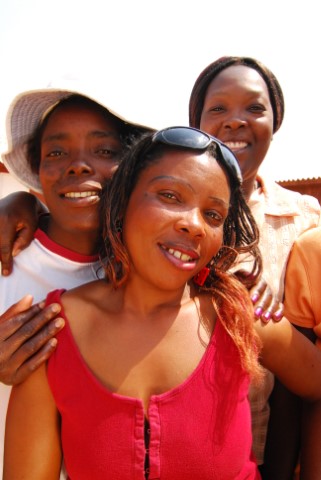Written by Tiffany Lillie, Senior Technical Advisor, LINKAGES

Photo: International AIDS Alliance
Peer navigation bridges the divide between members of key populations (KPs) who are living with HIV and the health systems in their communities that provide care and treatment services. Peer navigation is especially important given two main truths about today’s global HIV epidemic:
- The HIV epidemic is growing rapidly among KPs, who include men who have sex with men, sex workers, transgender people, and people who inject drugs.
- Antiretroviral therapy can have a dramatic, positive effect on the overall health outcomes of people living with HIV, yet KP individuals living with HIV face specific challenges both in accessing treatment and maintaining adherence.
Although programs vary, peer navigators are often HIV-positive, medication-adherent role models who are from KP communities. Because of peer navigators’ personal connection to the people they work with, they are best equipped to understand the needs of KP peers and can adequately convey how to access and use prevention, care, and treatment services for people living with HIV, their partners and loved ones, and their children.

Photo: Chris Morgan, Department for International Development
Marceline, a 38-year-old peer navigator in Cameroon, shares her thoughts on the work she does within KP communities:
“Being a peer navigator brings me a lot of joy and satisfaction because I not only follow current patients, but [I] also help patients who have abandoned treatment…. We really are helping save lives, a lot of lives. We become like family members because through our role we help reduce the number of deaths in the community. I am grateful that I was trained as a peer navigator to support others living with HIV.”
The Peer Navigation for Key Populations Implementation Guide was recently developed by the USAID and PEPFAR-supported LINKAGES project to help build a cadre of trained HIV-positive peers like Marceline to engage and retain KP members living with HIV in the health care system. This implementation guide evolved and was adapted from several initiatives that incorporate peers in HIV programming to improve health outcomes, including the HIV Prevention Trials Network 061 study, funded by the National Institutes for Health; the Key Populations Implementation Science study in South Africa, funded by USAID and implemented by FHI 360 and Johns Hopkins University; and Building Blocks to Peer Success, a toolkit for training HIV-positive peers developed by a consortium of partners and led by Boston University’s School of Public Health.
The ultimate goal is to have a trained group of peer navigators working as part of a team of providers who can reach and support KP communities around the world to ensure that those living with HIV can effectively and efficiently access the full range of clinical and psychosocial services available to them, and maintain healthy, positive lives. LINKAGES is currently implementing peer navigation in Botswana, Cote D’Ivoire, the Democratic Republic of the Congo, Jamaica, Kenya, and Malawi as a key strategy for improving KPs’ access to and retention in HIV care and treatment services.

Photo: Ian Taylor
